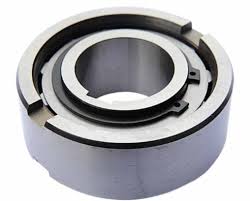Aug . 21, 2024 10:36 Back to list
Suppliers for High-Performance Ceramic Linear Bearings in Various Industries
The Growing Demand for Ceramic Linear Bearings Supplier Insights
In contemporary manufacturing, the demand for precision components has catalyzed significant innovations in materials technology. One such innovation is the ceramic linear bearing, which has gained traction due to its unique properties and advantages over traditional metal bearings. This article explores the characteristics of ceramic linear bearings, their advantages, and a brief overview of suppliers in this niche market.
Understanding Ceramic Linear Bearings
Ceramic linear bearings are mechanical components that enable smooth linear motion. They are made from advanced ceramic materials, such as silicon nitride or alumina, which provides distinct benefits over conventional steel or bronze bearings. These bearings are designed to support moving parts along a linear path, minimizing friction and wear during operation.
Advantages of Ceramic Linear Bearings
The appeal of ceramic linear bearings lies in several key advantages
1. Reduced Weight Ceramic materials are significantly lighter than metals, which contributes to the overall reduction of weight in machinery. This is particularly advantageous in applications where weight savings are critical.
3. Low Friction The surface properties of ceramics allow for smoother movement with reduced friction. This characteristic not only enhances performance but also extends the lifespan of the components being supported.
4. High Temperature Tolerance Ceramics can withstand much higher temperatures compared to metals, making them suitable for high-temperature applications.
ceramic linear bearings suppliers

5. Electrical Insulation As non-conductive materials, ceramic bearings eliminate the risk of electrical interference in sensitive applications, such as those found in electronics or aerospace.
These properties make ceramic linear bearings highly desirable in a variety of industries, including automotive, aerospace, medical devices, and robotics.
Identifying Ceramic Linear Bearing Suppliers
As the demand for ceramic linear bearings has surged, numerous suppliers have emerged, each offering a range of products catering to different industrial needs. When scouting for a reliable supplier, it is essential to consider factors such as quality, customization options, and technical support.
1. Quality Assurance Leading suppliers often adhere to rigorous quality standards, such as ISO certification, to ensure that their products meet the required performance benchmarks. Always inquire about the supplier's quality control processes.
2. Customization Capabilities Different applications may necessitate specialized designs or dimensions. Suppliers that offer customization can tailor products to fit specific requirements, which is a significant advantage for manufacturers.
3. Technical Support and Expertise Suppliers with technical expertise can provide valuable insights during the selection process and offer post-purchase support to troubleshoot any issues that may arise.
Conclusion
The evolution of manufacturing technology has introduced ceramic linear bearings as formidable competitors to traditional bearings due to their superior properties. As industries continue to embrace innovative materials, the landscape for suppliers is dynamic and competitive. Manufacturers seeking reliable ceramic linear bearings should focus on quality, customization, and expert support to ensure optimal performance in their operations.
In conclusion, with the ever-growing need for efficient and durable components across various industries, the role of ceramic linear bearings and their suppliers will likely expand, driving further advancements in manufacturing technology and material science. As businesses continue to prioritize efficiency and reliability, the future for ceramic linear bearings appears to be exceptionally bright.
Latest news
-
25MM 2 BOLT UCFLX05-14 Flange bearing unit( oval)
NewsMar.07,2025
-
4 bolt UCF 200 series Pillow block bearings
NewsMar.07,2025
-
25MM 2 BOLT UCFLX05-14 Flange bearing unit( oval)
NewsMar.07,2025
-
UCF216-50 4-Bolt Flange Housing Square Bearing
NewsMar.07,2025
-
25MM 2 BOLT UCFLX05-14 Flange bearing unit( oval)
NewsMar.07,2025
-
spherical roller bearing material exporter
NewsMar.07,2025





